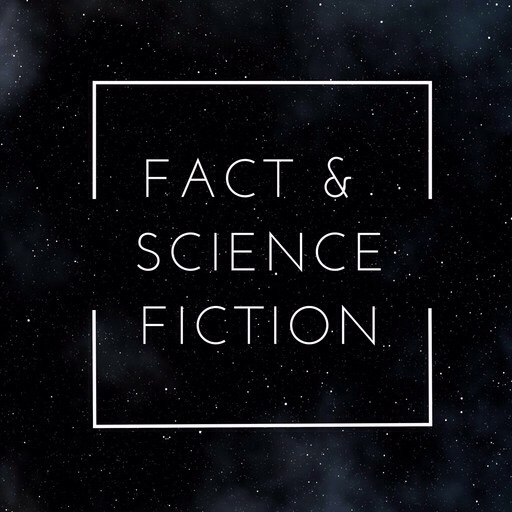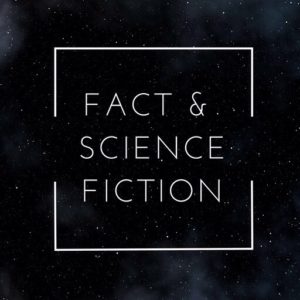
Fact and Science Fiction
Genre: Social Sciences
Host: Karly
A spotlight and review by Brooke Ali

If you were to take a peak at my podcast subscriptions, you’d see it’s pretty nerdy: lots of science, history, and literature shows. So when I heard about a new podcast that looks at science as portrayed through science fiction, I was excited to add a new show to my regular line up.
Fact and Science Fiction, hosted by the unsurnamed Karly, focuses each episode on a scientific topic and explores how it’s portrayed in science fiction, and how that portrayal can help us understand it. From cloning in Orphan Black to the ethics of virtual reality in Westwood, Karly uses well-known media properties to explain the larger themes and issues that are sometimes hard for laypeople to understand. In her 4 minute long preview episode, Karly explains that her purpose in creating this podcast is to use the familiarity of science fiction to bridge the gap between the complexities of science and the oversimplification of a lot of science reporting.
Karly definitely has a passion for both the science and literature of her topics and comes to each episode prepared with lots of research. She’s also able to get interviews with people in the relevant fields, like NASA engineer Holly Griffith. However, she’s still finding her footing in the podcast format. Full episodes of a single voice can get a bit monotone with nothing to break it up. Her speaking style edges into the low energy range; instead of sounding like someone you could discuss artificial intelligence with in a pub, she comes off more as someone you could discuss artificial intelligence with in a library. That’s not to say this is a bad thing, some of the most interesting conversations I’ve ever had took place in libraries, but as a monologue it could use something to break it up now and then. The interviews can help combat this issue, as long as the interviewee isn’t similarly low energy. Even adding short music breaks could go a long way.
It’s clear that she’s working on building her production skills; in later episodes she adds audio from movies as she references them, although it sounds like she’s holding her mic up to a speaker, rather than editing the audio clip in. I also wish she scripted her shows a bit more, or followed her script more closely if she writes one, as this would help eliminate some of the “um”s and “uh”s that pepper her speech. Indeed, the sections that do sound like they’ve been scripted sound much more confident and natural than when she seems to be speaking off the cuff.
The topics she has chosen so far are fascinating and very much of-the-moment. She’s delved into representations of gender and sexuality in science fiction, the good and bad of corporate sponsorship in research, the current and future state of healthcare and disease, and how military science fiction influences the discourse around military issues in the real world. Connecting complex topics to books, movies, and tv shows (video games are a gap in her knowledge, a fact she admits whenever Mass Effect comes up), really brings these issues to life for the listener and helps them to understand without a needing strong academic background in science.
Verdict:
Listen! The discussion topics are interesting and well-researched, and do a great job of using well-known pop culture to explain difficult scientific topics. As her podcasting production skills increase, this show will only get better. I would like to see her join a podcast network where she can get access to funding, training, and support. This podcast has a lot of potential and deserves to get there. It’s only 10 episodes in, so it’s easy to binge and catch up.



![[REVIEW] IRON FIST: HEART OF THE DRAGON #1](https://geekd-out.com/wp-content/uploads/2021/01/iron-fist-heart-of-the-dragon-1-feat-150x150.jpg)